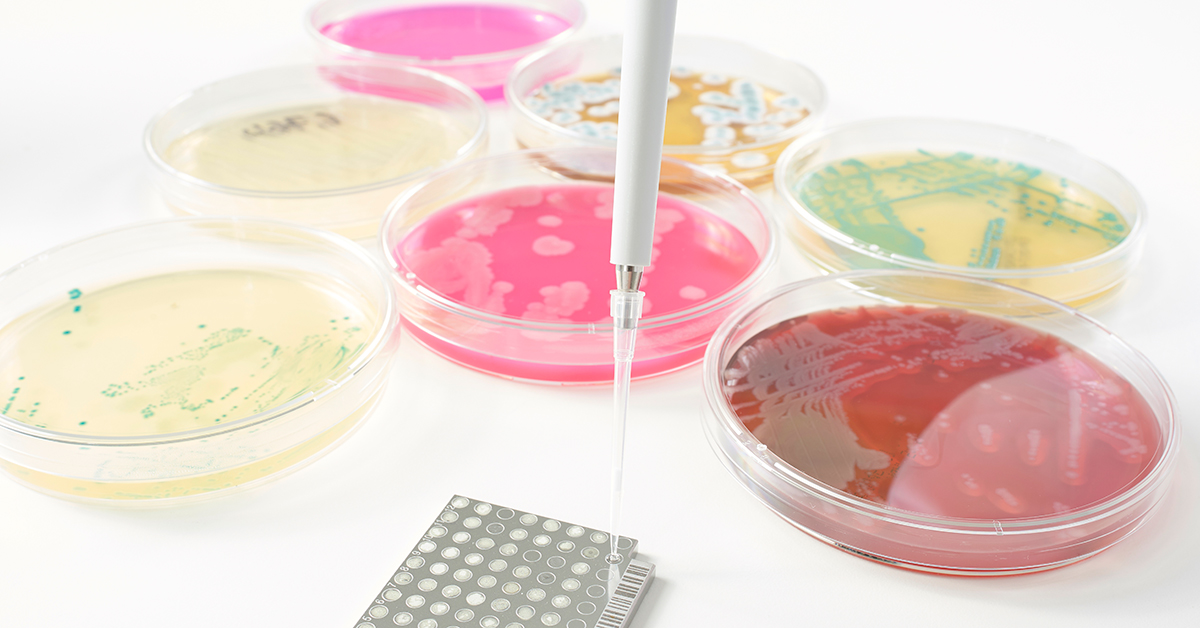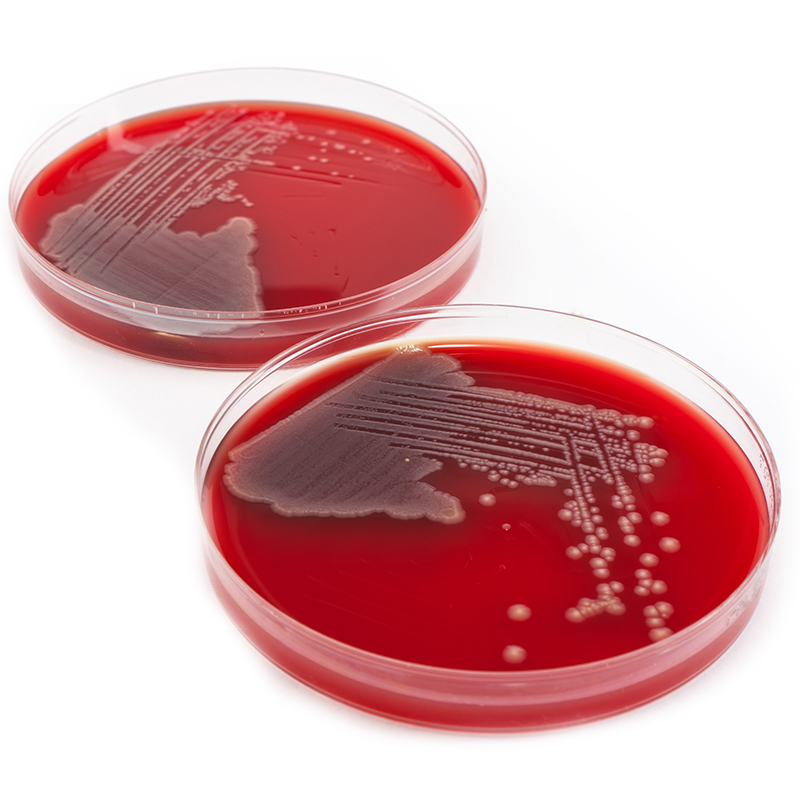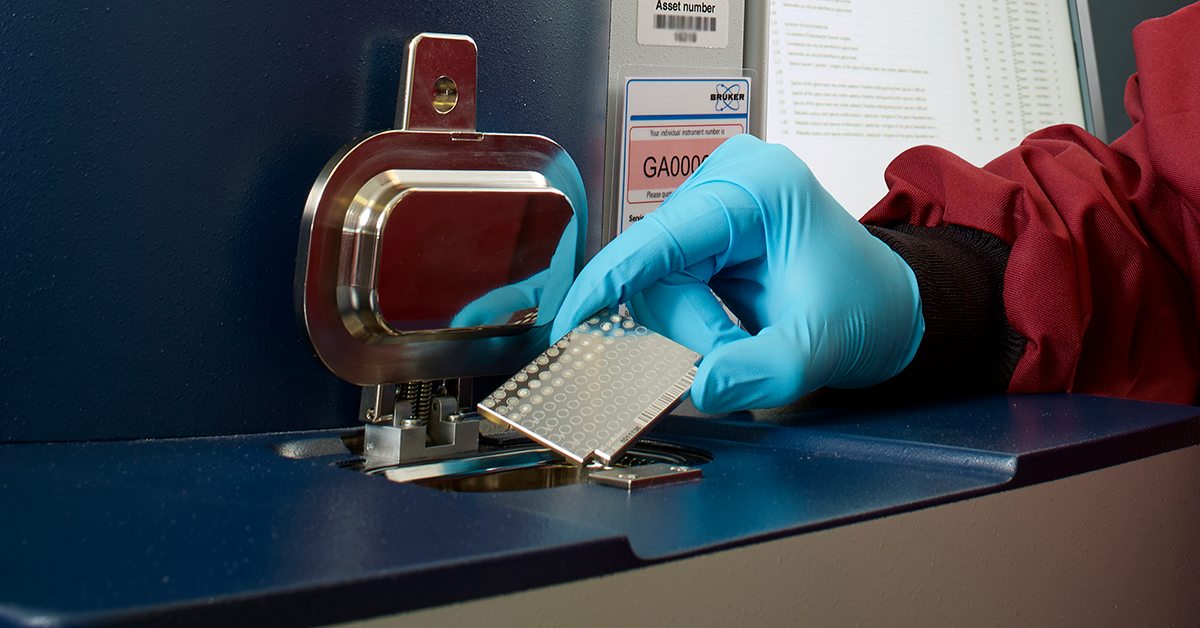
Fast, accurate microbial identification – why it’s important and how to get it
11 February 2025 | Tina Shilham, Section Lead - Microbiology Analytical Services
The identification and characterisation of microorganisms is a key part of the management of food safety and quality, tracing contaminants and troubleshooting problems such as spoilage or the presence of a pathogen in your product.
Knowing how to identify bacteria or other unknown microorganisms that you have encountered can help to assess whether it poses a safety or spoilage concern or is likely to be heat resistant, for example.
When an unexpected spoilage issue occurs, or a pathogen is detected in a product or in the factory environment, identifying the specific microorganism present can help establish why it occurred, what to do about it and how to prevent a recurrence.
Why you need to identify the organism / cause
Preventing microbiological food spoilage and foodborne illness are priorities for all manufacturers and retailers. Whether dealing with consumer complaints or a microbial contamination issue identified internally (e.g. unexpected presence of microorganisms found in routine testing), understanding and addressing the source and cause are top priorities when such issues occur.
Knowing what you are dealing with enables you to assess the risks posed and to make decisions. For example, whether or not the microorganism present in your product is a spoilage organism or whether there is a food safety risk posed by the presence of a pathogen.
Microbiology: Protect your business and your customers
Protect your customers and your brand from risk with Campden BRI’s unique wrap around testing and advisory microbiology solutions.

Specific microorganisms can be associated with specific food categories and origins. Plus, many microorganisms occupy a diverse range of habitats, so the only way of knowing the origins of a particular contaminant is to identify/characterise it to a specific strain and then match that with a strain elsewhere in the environment or in a particular food ingredient.
As such, identifying the microorganism present in a sample can help to understand where in a process the issue most likely occurred, where the contamination is occurring within a factory, as well as potential sources of the contamination. Whether investigating the presence of microorganisms in product samples or in environmental monitoring samples, this level of understanding enables further investigation and targeted preventative / corrective actions so that you can fully address the issue and prevent reoccurrence.

Methods available for microbial identification
MALDI – for fast, accurate results
MALDI-ToF (matrix assisted laser desorption ionization-time of flight) mass spectrometry can be used as a microbial identification tool to provide a fast, accurate, affordable service for species identification (both genus and sub-genus). We are UKAS accredited to ID Campylobacter, Listeria and Salmonella.
When identifying microorganisms – particularly pathogens – response time is really critical to helping our clients solve the problem. As well as accuracy, our MALDI testing provides results fast.
With a fresh isolate provided, in a ready-to-test form, it is possible to provide full species ID results on the same day that the sample arrives with us.
With these timeframes we are eliminating the need for clients to work with presumptive positive results. We can get a confirmed result and report out to the client straight away so that they can start acting on confident, confirmed results and not waste time on presumptive false positives.
Ribotyping – for even more information
This overnight test provides even more detailed information than that provided by MALDI. Ribotyping provides a genetic ‘fingerprint’, which can be compared to other strains. This means that, as well as a species ID, this method also provides an identification of the specific strain.
Ribotyping provides an identification of the specific strain, plus database fingerprint matches can be invaluable for investigation work.
Part of the service also includes a comparison of the sample fingerprint against all others within our database of results – insights from matches can be invaluable for investigation work, especially for tracing the source of contamination.
How we can help
From establishing the required tests through to interpretation and support, our experts are here for you every step of the way. Relevant, reliable and timely analytical results are essential for many of the day-to-day and strategic business decisions that you make. Making the best decisions requires accurate, reliable results and the understanding behind them. Our wide ranging services are underpinned by extensive method development, validation and accreditation to give you access to what you need.
Just some of our testing includes that for pathogens, spoilage organisms, due diligence testing, routine microbiological analysis, disinfectant/sanitiser efficacy, challenge testing and shelf-life.
As well as offering routine microbiological analysis, we can help companies with microbial contamination issues by identifying the organism, sub genus, and even the ribotype, involved. Alongside fast, accurate, reliable results, our experts can also support you with interpretation to help troubleshoot the source and cause of the contamination.
We can advise on your testing and methodology requirements for your specific situation and product, and can conduct microbiological testing – both for routine analysis and for analysis in response to a challenge or for investigations / troubleshooting.
How can we help you?
If you’d like to find out more about our microbial identification service, get in touch.
More on microbiological testing
Find out more about the comprehensive range of microbiological testing that we offer.







